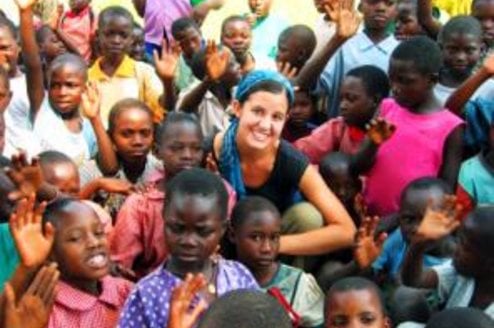I have volunteered abroad with Help International three times now (Uganda, Nepal, and Peru). The organization’s mission to Empower People is successful, but it is only obtained and sustained when intelligent, driven, confident, and loving people volunteer. I have witnessed firsthand, on countless occasions, the success of their mission. My experiences with Help are all positive and have completely changed my life. But, going abroad, to countries that are underdeveloped because of war or the environment, or for whatever reason, is NOT EASY. It is actually extremely difficult, from living in conditions we are not used to in the United States, to eating food that could very well make us sick. Volunteering with Help tests you as a person. Nevertheless, the power of the experiences with the people you empower outweighs any of the difficulties. So a review criticizing the organization shows me the person should not have taken the trip in the first place and overestimated their own ability to commit to such a program. Volunteering with an organization like Help is for people who are strong already – not just physically, but mentally and emotionally. It is for people who are seeking the next level of their emotional maturity. Not for people who are developing a sense of self. It is for people who want to see what they can do for the world, not what the world can do for them. Help changed my life, and I am eternally grateful. I encourage anyone who believes they are ready to make their life about someone besides themselves – to join Help in empowering people.
Lastly, the criticism I have read seems “personal” and not a reflection of Help as a whole. The safety of the volunteers is paramount and with that, comes strict limitations. I know for a fact that volunteers are allowed to socialize with locals, but volunteers are not allowed to develop romantic or flirtatious relationships with locals. One focus of Help is that we do not place our American belief system upon others; that we respect the culture, and sometimes that means limiting exposure. But secondly, it is dangerous if you do not follow the rules and guidelines well established by the organization. Furthermore, Craig, felt that the organization was sexist. I submit that Craig has never actually experienced real sexism. As he sits in Uganda, where women are constantly raped and degraded for simply menstruating, he is pissed because he is surrounded by a bunch of females? Craig needed to get some perspective. I couldn’t agree with the director’s advice to Craig more, because it is what he will experience his whole life: DEAL WITH IT. There are times in life where we set aside our complaints and allow perspective make us a better person.







